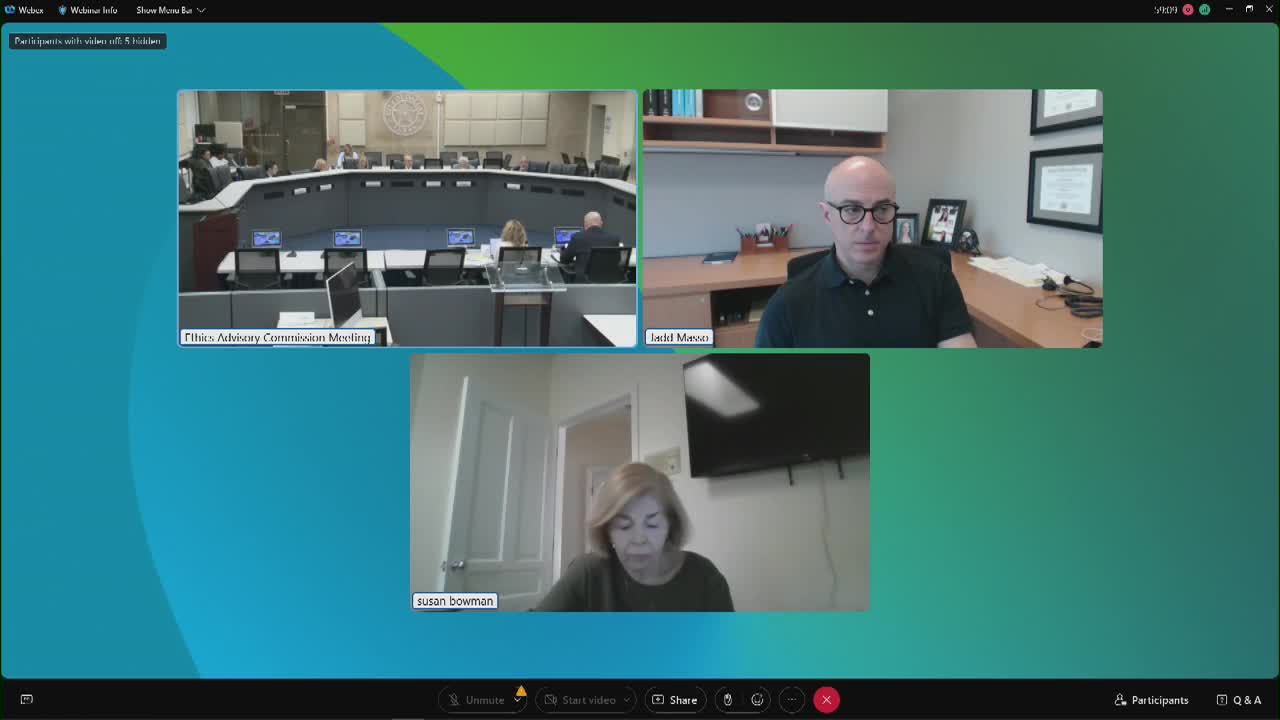Dallas inspector general briefs commission on trainings, investigations and push for limited law-enforcement powers
Get AI-powered insights, summaries, and transcripts
Subscribe
Summary
At its April 15 meeting the Dallas Ethics Advisory Commission heard a second-quarter briefing from the Office of Inspector General that outlined trainings, a fraud roundtable with visitors from Belarus, management alerts, one filed ethics charge and active legislation seeking limited law-enforcement authority for the office.
Bart Beavers, the city of Dallas inspector general, told the Ethics Advisory Commission on April 15 that the office completed a mix of training, outreach and investigatory work during the second quarter of the fiscal year.
Beavers said the office delivered 10 trainings and conducted six departmental risk assessments that together reached 608 people. He told the commission the office prepared “five or six” public service announcements for communications and attended a strategic communications training by the Association of Inspectors General.
The work also included international engagement: Beavers described hosting a fraud-and-corruption roundtable with participants who had left Belarus. He said the meeting was striking because the visitors had been “former” prosecutors and investigators who had to flee their country, and that some had been tried in absentia. Beavers said the visitors declined photographs in the Flag Room because of safety concerns.
The inspector general also summarized investigatory work. He said the office delivered two management alerts to the city manager’s office and the city council on Jan. 17 and has filed ethics charges against one city employee during the quarter. When asked about follow-up to the management alerts, Beavers said, “I haven’t received any management responses at this time.” He said the office gives departments 30 days to provide a management response and will issue a final report if no response is provided after a reasonable time.
Beavers told the commission that three bills had been filed on the office’s behalf to give it limited law-enforcement tools and access. He identified the measures at the hearing as “House bill 31 77” by Representative Rafael Anchia, “Senate bill 15 64” by Senator Nathan Johnson and “House bill 39 48” by Representative Yvonne Davis. He said the full city council unanimously approved pursuing law-enforcement status in late January, after an ad hoc committee on legislative affairs had recommended the effort.
Explaining why the office seeks that limited status, Beavers said prosecutors and investigators need access to certain tools and systems to pursue criminal fraud and corruption investigations. He singled out the FBI-run National Crime Information Center, saying it is necessary to avoid misidentifying people — “There’s a lot of John Smith’s in Dallas,” he said — and described other needs such as the ability to present to grand juries and to seek judicially issued search warrants and subpoenas. Beavers emphasized that the office is seeking limited law-enforcement status that would not involve patrol duties, arrests or typical peace-officer obligations such as firearms qualifications.
Commissioners asked about funding for international visits and whether meetings with foreign visitors were paid for with city or federal funds. Beavers said those particular visits were arranged through the U.S. State Department and that the hour-and-a-half meeting with the Belarusian visitors occurred on city time. He also told commissioners he and staff had traveled to Austin in March and earlier in the quarter to meet with legislators and testify as resource witnesses on the bills.
The inspector general said the office will follow up with departments that have not provided management responses and will include final, council-level sanctions in the office’s quarterly reports when applicable.
